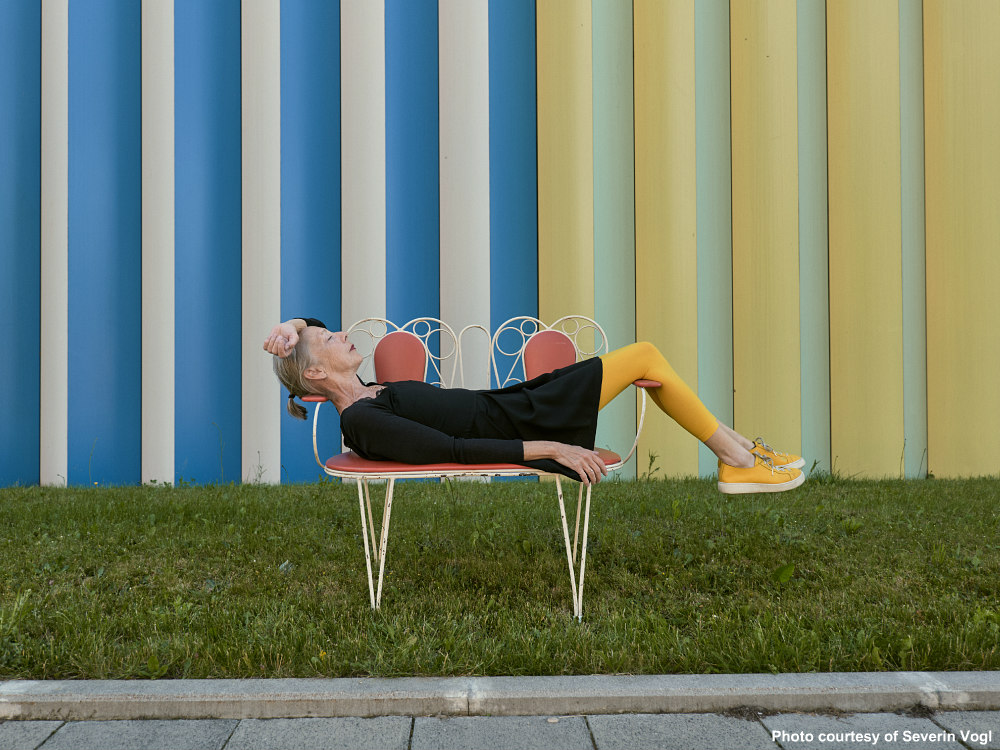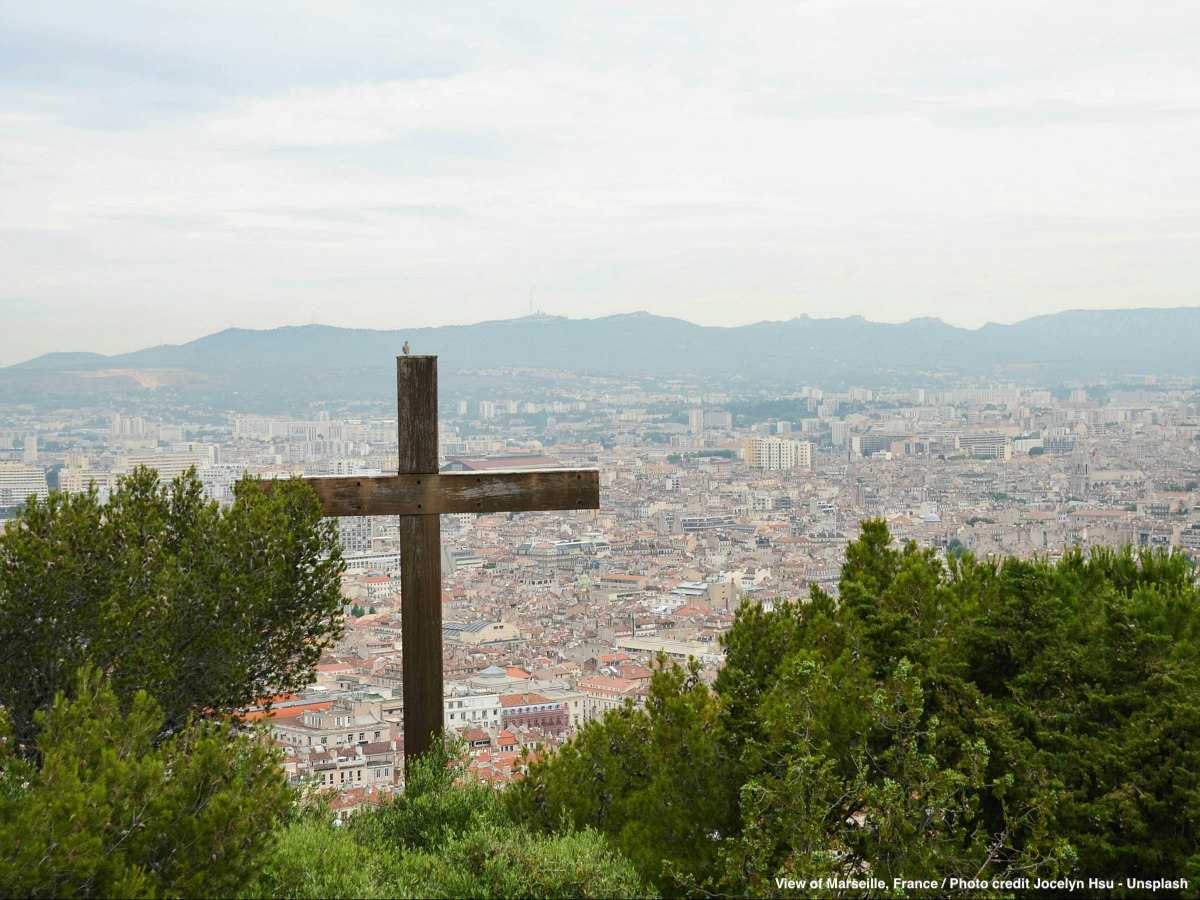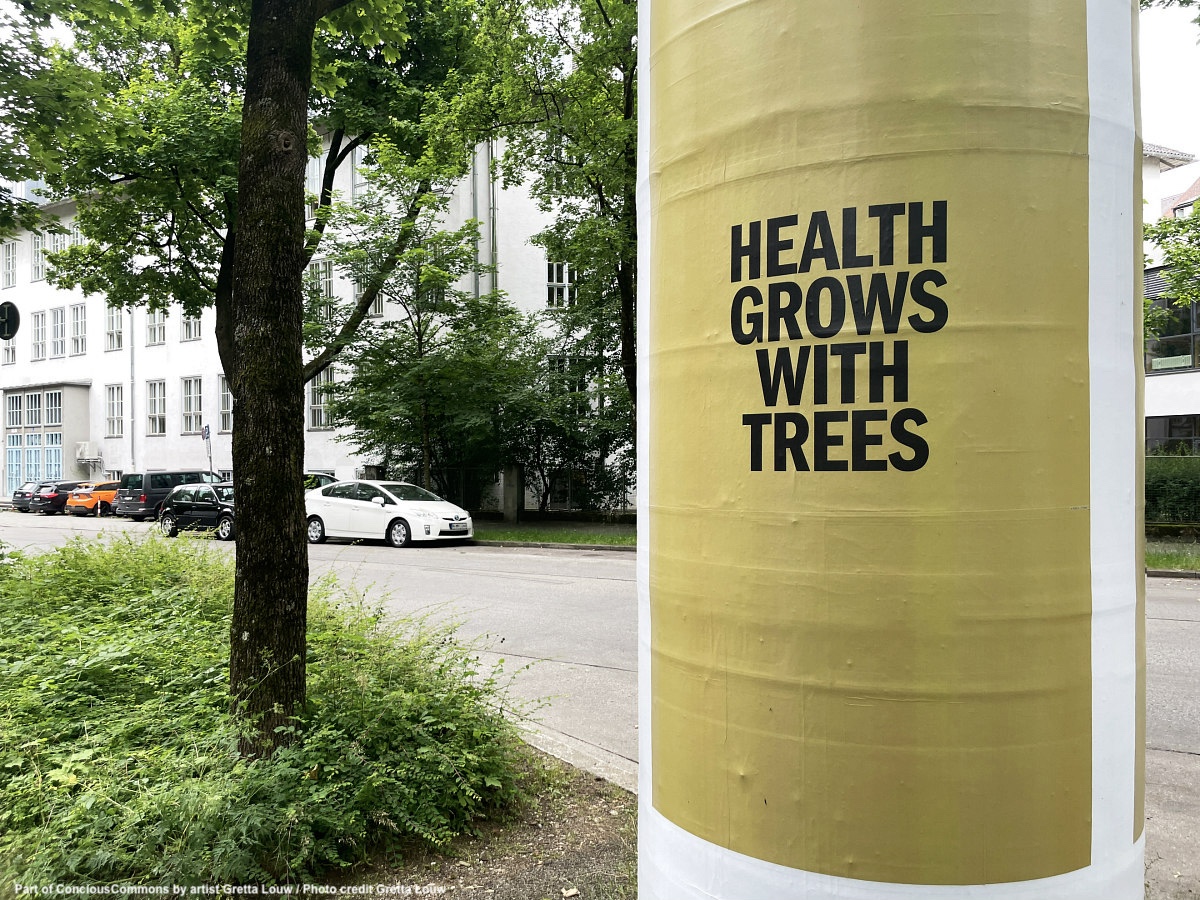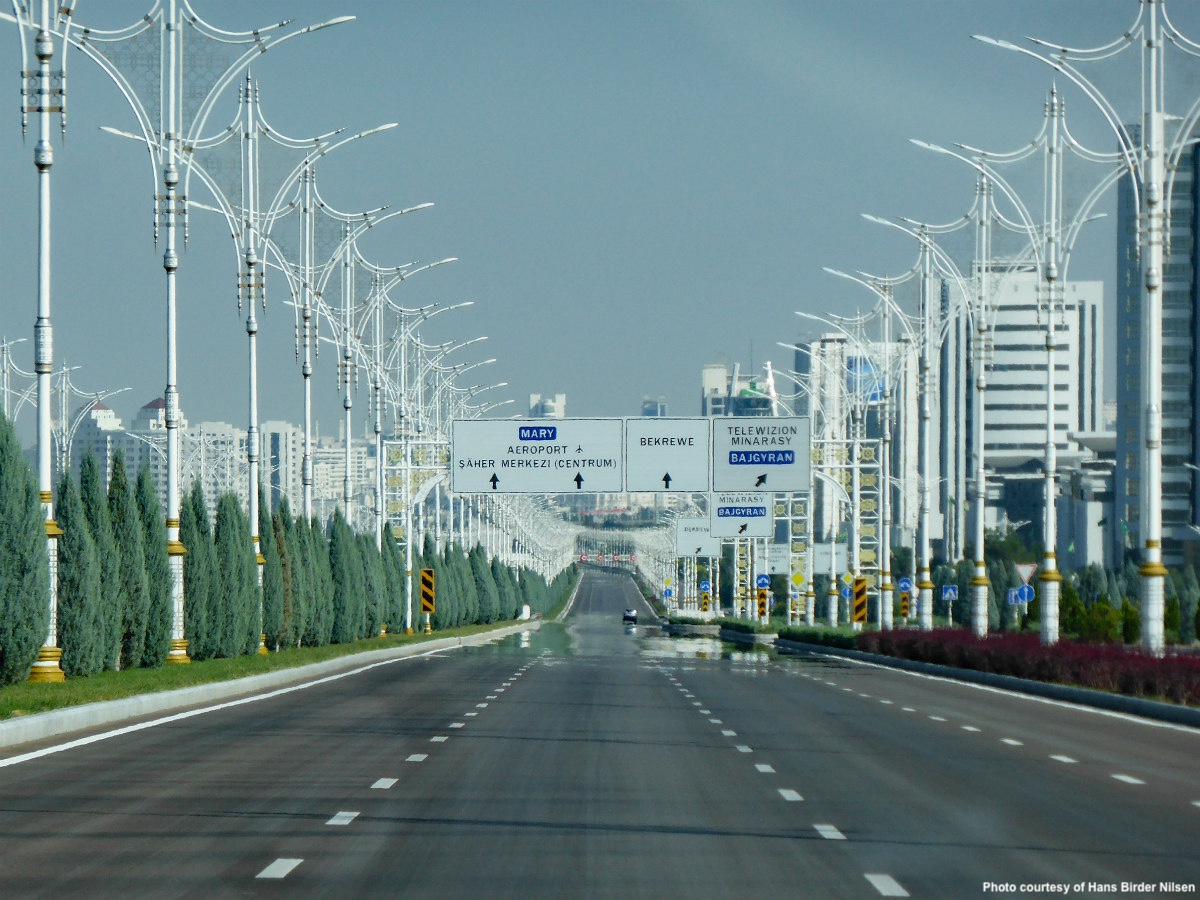There is something great about cities. You are never really alone. Whether you are by yourself on the street, in the subway, or having a coffee. Even despite Covid-19, we are always surrounded by thousands of people. We all live together. The opportunity to make a connection is always there, hanging in the air, waiting to surprise us, when we are willing to listen to strangers. The development of ideas, inspiration and even empathy comes out of the power of listening, the ability of citizens to mindfully hear one another.
Taking all this into account, there is however the lack of interest in exercising the right to listen. This makes us miss so many potential opportunities in daily situations in the course of our urban lives.
This summer, performance artist Ruth Geiersberger and filmmaker Severin Vogl pursued the question ‘How do we want, how can we live together?’ in their art project Bankerl (translated Little Bench). They traveled with a vintage red and white bench through Munich and the surrounding areas to listen to urban dwellers to find out which values and priorities move them. Passers-by were invited to sit on the bench in public spaces and share their personal stories.
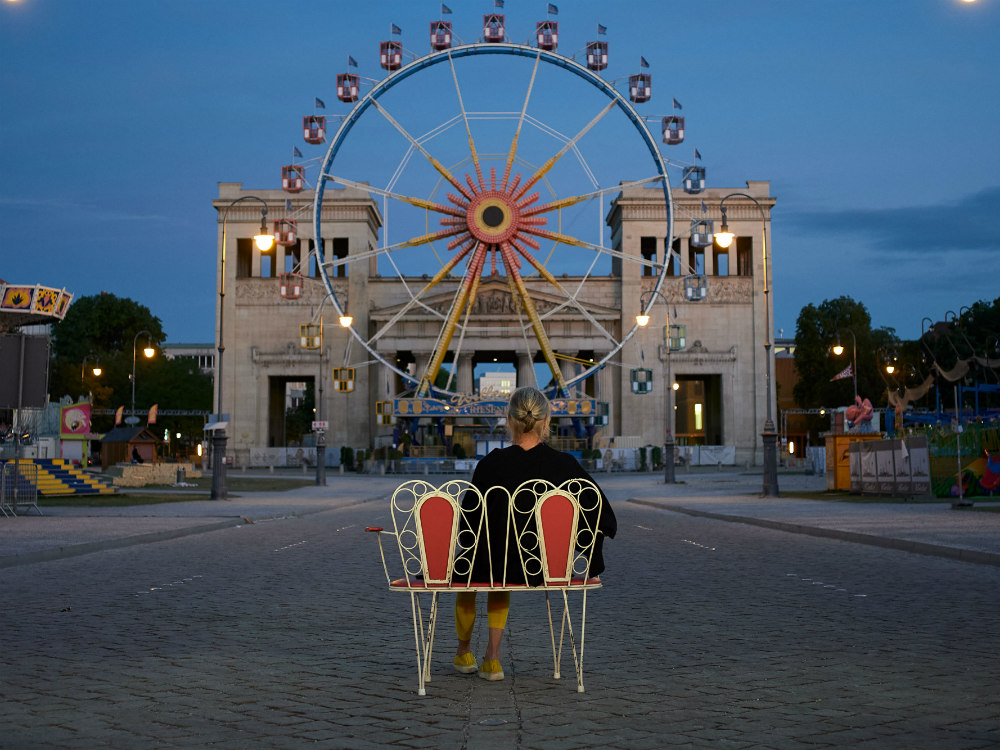
Severin Vogl has used these conversations to create a film for the public, which represents the voice of the city and the importance of living together harmoniously. Throughout this pandemic, there are clearly ongoing and unanswered questions which citizens are confronted with every day.
The Cultural Department of the City of Munich has commissioned the project Bankerl as part of a series of Art Interventions in Public Spaces.
Do we mindfully hear one another in cities?
‘A real conversation, an in-depth discussion can only succeed if you really listen. We didn’t pretend to lecture anybody with our interviews and we won’t later with the film. People should reflect and have their own thoughts about the conversations’, explains Vogl.
Severin Vogl is a filmmaker and photographer; a graduate from the University of Munich. His strengths are individual, convincing and memorable. His work is characterized by a special approach. He is conscious of each person’s individuality, thereby empowering them to voice their opinions. Competence is a matter of the heart for him, finesse and thoughtful restraint are serious criteria – especially towards people in front of the camera. Among other things, Severin Vogl made a film for the Bauhaus Association and accompanied the first handover of a dance theater piece by Pina Bausch.
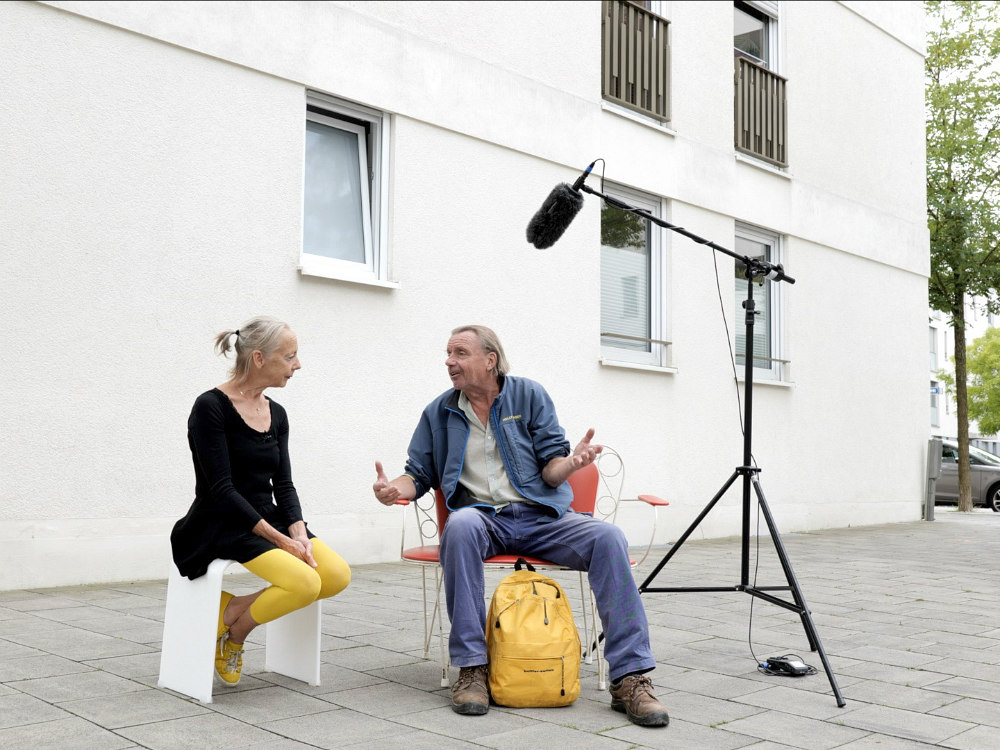
‘We have intentionally interviewed people of any gender, race, sexual orientation, age, physical ability and wealth — from businessmen to immigrant factory workers and asylum seekers. Even if we announced the locations for interviews in the newspaper, almost all the conversations happened spontaneously with passers-by. No names were asked because personal information shouldn’t be a burden to open up’.
The powerful act of listening to one another in cities
A common bond among all interviews was the therapeutic effect. Interviewees felt acknowledged and valued by a stranger in the public realm. This might suggest that quite often many people go unheard and others simply assume that no one is interested in listening to them. Yet the ability of citizens to mindfully hear one another in the public sphere is essential for the city to yield an inclusive and better society.
We felt that people had genuine conversations with Ruth about their lives, says Vogl.
Listening has never felt so powerful. Often coming to the conclusion, in the course of those encounters, that a conversation is invaluable to one’s mental health. This has been especially highlighted during the pandemic.
The performer and actress Ruth Geiersberger is a decisive figure in those interviews with her acting, voice and body work, a field where she excels. She teaches at the Academy of Fine Arts in Munich, at the Institute for Theater Studies in Munich and the FU Berlin. In her work, as a “field researcher”, she explores the urban outdoor space. In search of “home”, the artist goes to unusual places that are in a so-called waiting state: at the train station, on construction sites, in bunkers, in churches, in empty shops, in the zoo or in the museum.

‘The original idea was closeness between Ruth and the interviewee, both sitting on the bench shoulder by shoulder. We wanted to confront urban dwellers with human proximity. Unfortunately the pandemic changed our plans and, most sadly, it has challenged the human need for physical contact. Ruth sat on a chair and the interviewee on the bench’, explains Vogl.
When I heard about the Bankerl project for the first time, it immediately reminded me of The Friendship Bench project in Zimbabwe, which has successfully changed the lives of so many Zimbabweans struggling with depression and other mental disorders.
The therapist’s couch is a wooden bench under a tree. The therapist is an elderly Zimbabwean woman, in a long brown dress and headscarf. Her patients call her “Grandmother” when they come along to sit on her bench and discuss their feelings, their depression or other mental health issues.
‘We know the project and it has also inspired us, in a way, to call attention to the power of listening in cities, even in unconventional and simple ways, to explore how we want to live together to keep cities and our society mentally healthy’.
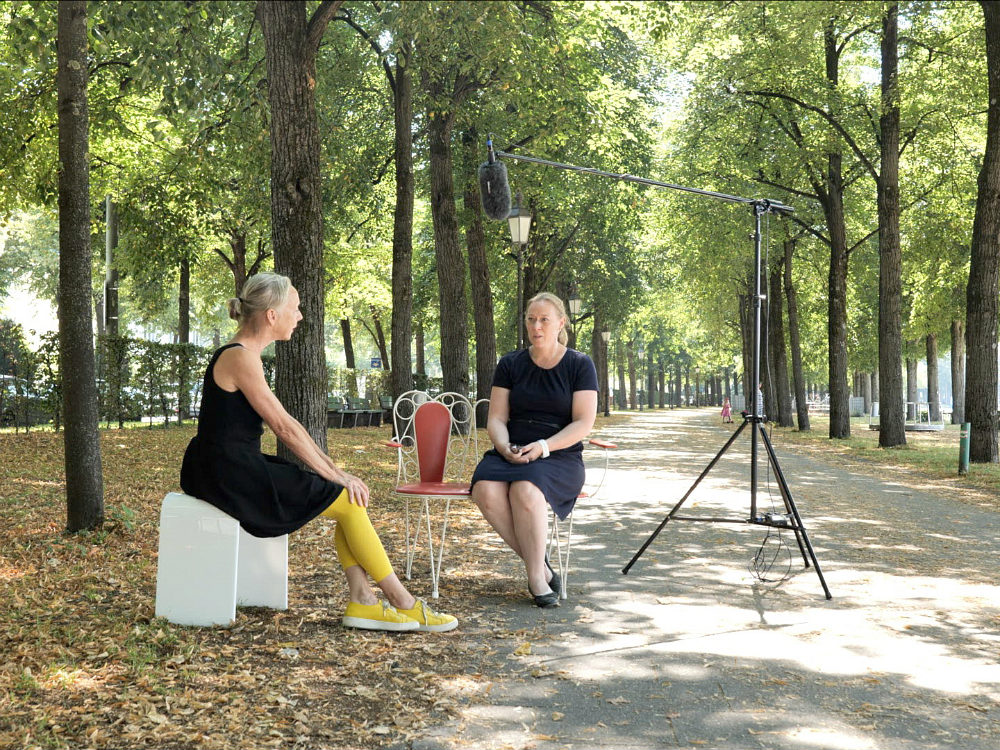
Last year at the World Economic Forum the founder of The Friendship Bench Project Dixon Chibanda said: ‘I learnt the importance of the human element, empathy, active listening, being yourself and sharing your own experience. These are the components which made the Friendship Bench so successful’. The program is guided by the values of empathy and connection, and anchored in over a decade of rigorous research.
Their therapy rooms are outdoors and under trees, therefore creating safe spaces for people to connect and find belonging. Similarly, conversations at Ruths’ Bankerl make people feel part of something bigger and provide a sense of identity in the city.
Opening up eases loneliness in cities
The biggest enemy when someone feels unheard in a big city is loneliness because that person can develop the feeling of not belonging. This has revealing implications for a cohesive and democratic society, as Noreena Hertz wonderfully describes in her FT article ‘Why loneliness fuels populism’.
According to Hertz, ‘loneliness does something else too — it changes how we perceive the world around us’.
‘People tend to have an idealistic image of the city and urban life’, so Vogl. ‘The inability to live up to this ideal causes frustration. In a city reshaped by gentrification, migration and many other urban challenges, civil society feels overwhelmed about how the city really works. As a consequence, people feel invisible and voiceless’.
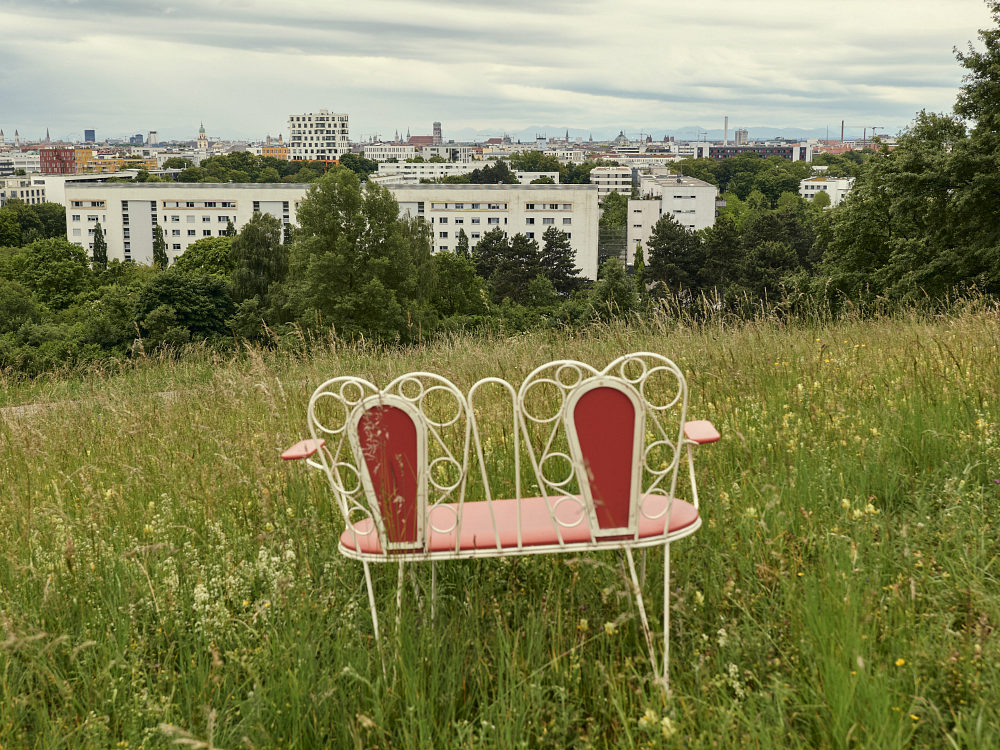
And yet cities have the most valuable assets, thousands of people. When one interviewee was asked ‘what is the meaning of life?’, after a long pause, the answer was simple ‘to be with people’.
People have a sense of powerlessness that everything is already planned in the city, explains Vogl. We invite passers-by to participate in a moment of individual expression.
The compilation of conversations pretend to create a ‘no-place’ or rather a ‘new place’ based on the aspirations and values of the interviewees’.
This coming Sunday the film will be screened for the first time in Munich on the facade above the entrance of the State Museum of Egyptian Art. People will stand outside, in the public realm listening to fellow citizens. It will be a moment of reflection.
This screening will be a meaningful gesture to reinvent the public sphere, and the public dialogue that can take place within it, based on the power of listening to people.
The pandemic may have made cities quieter, but, as far as I am concerned, after watching the film, I just want to keep listening to my fellow Munich citizens forever. Exercising more often the power of listening will help us all find the best way to get through this moment in history.
Film screening on October 11, 2020 on the facade above the entrance of the State Museum of Egyptian Art at 7.30 p.m., 8 p.m. & 8.30 p.m. Gabelsbergerstraße 35, 80333 Munich.
This article has been edited by Marisa Tan
This article has been amended to reflect an update on the screening date. It has been postponed from Saturday 10 October to Sunday 11 October due to the weather conditions.
